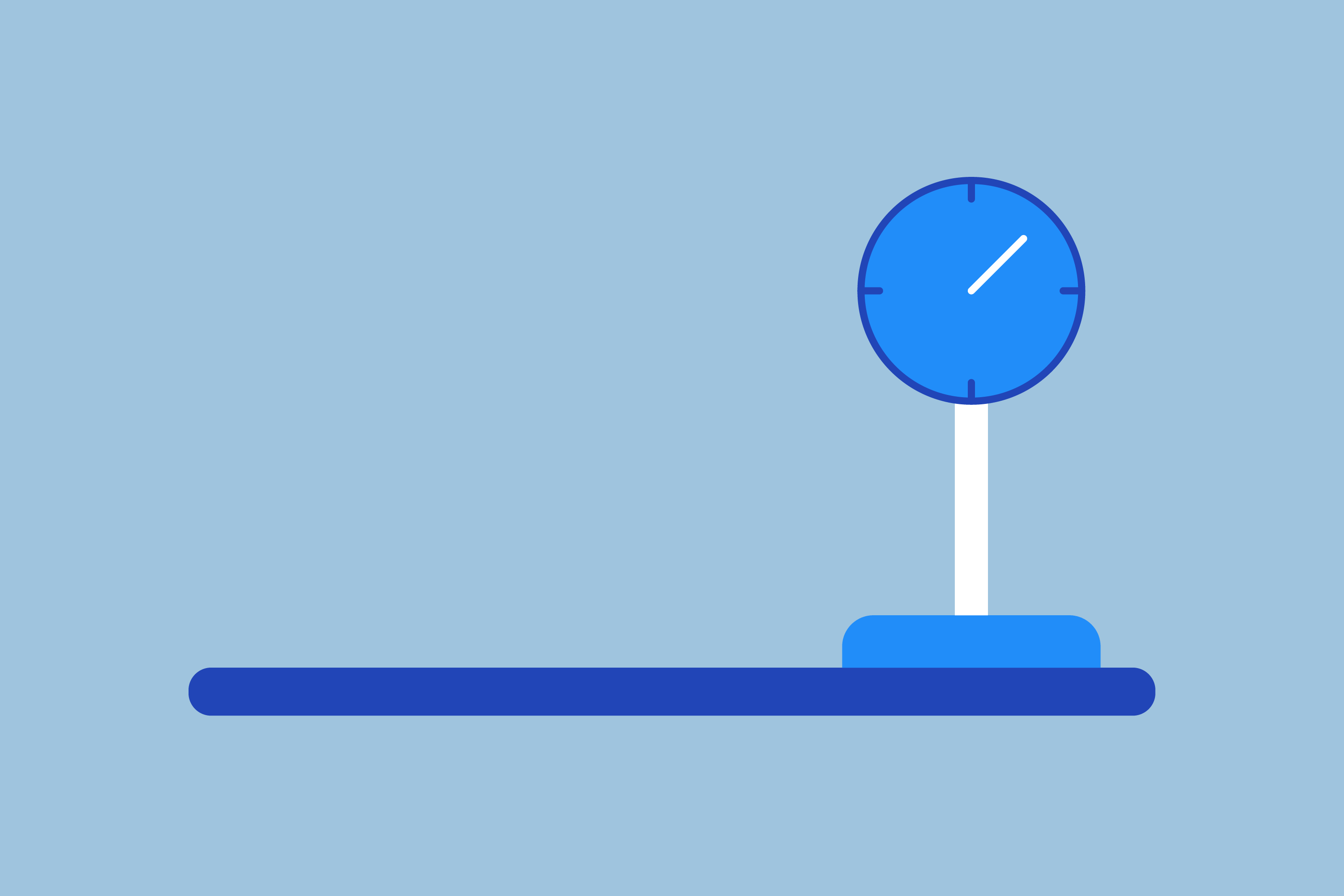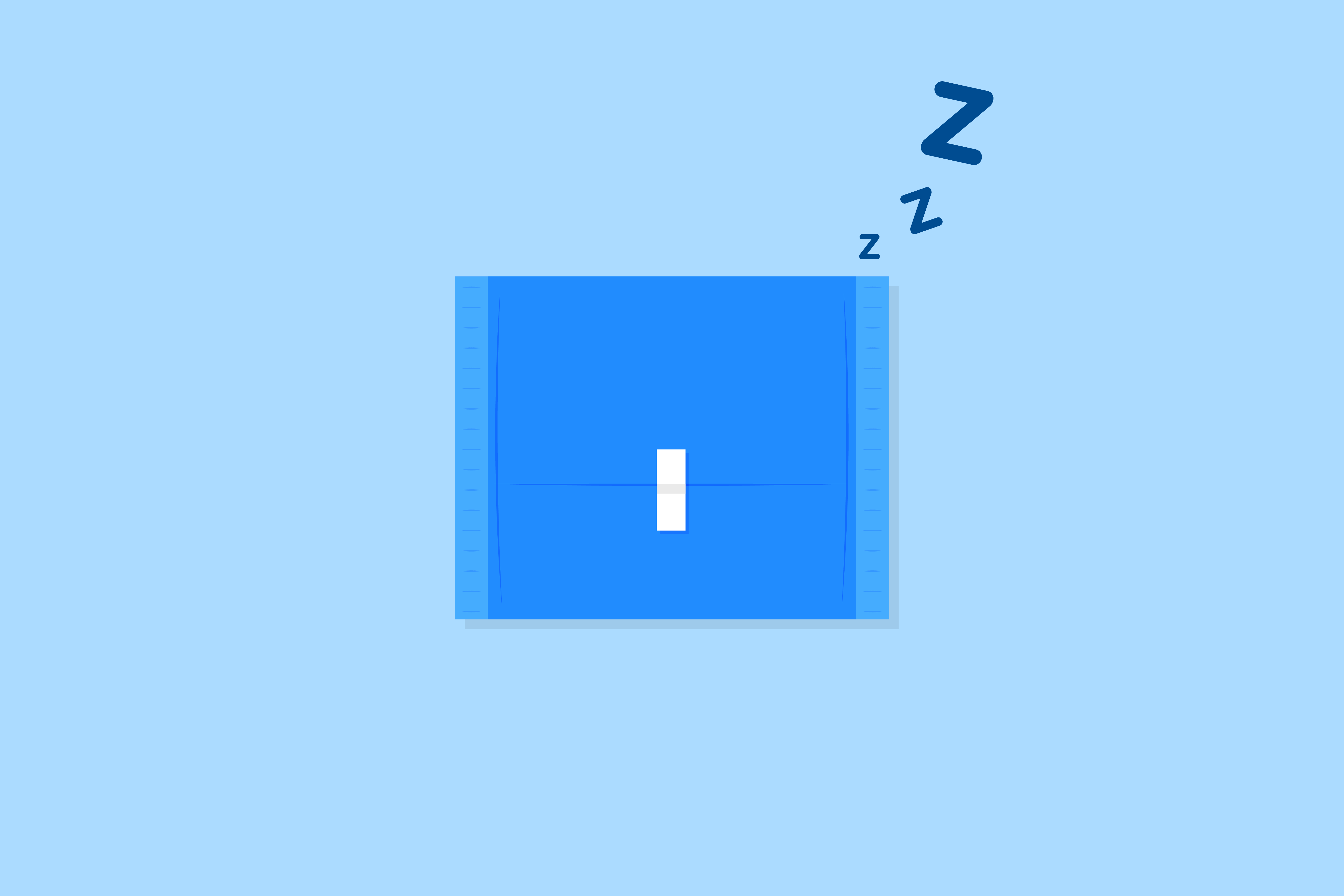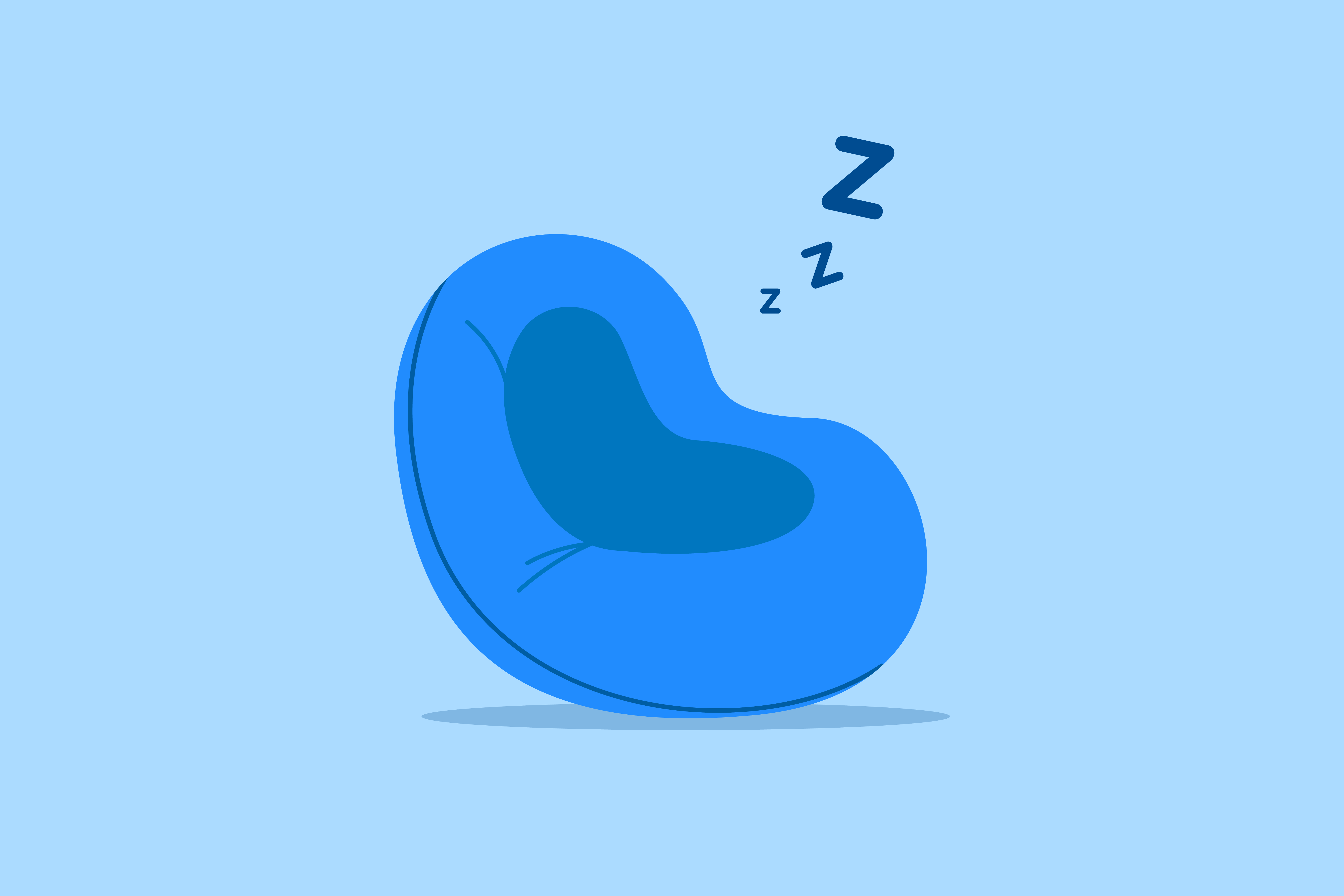Key Takeaways
- Sleep Apnea and Weight Gain: There is a strong relationship between sleep apnea and excess weight. Being overweight or obese significantly increases the risk of developing sleep apnea, and conversely, sleep apnea can lead to weight gain.
- Multiple Factors at Play: The connection between sleep apnea and weight is complex. Hormonal imbalances caused by sleep deprivation, such as increased ghrelin (hunger hormone) and decreased leptin (satiety hormone), can lead to overeating and weight gain.
- Two-Way Relationship: While obesity is a risk factor for sleep apnea, treating sleep apnea can also help with weight management. Addressing sleep issues can lead to improved energy levels, appetite control, and motivation for a healthier lifestyle.
For anyone with sleep apnea, managing your weight can seem extra challenging. You may have even seen the number of your weight on the scale creeping up since you started dealing with the condition.
Does sleep apnea actually cause weight gain? And if we conclude that it does, what can you do to manage it? In this article, we explore these questions to better understand the relationship between body weight and sleep apnea.
What Is Sleep Apnea?
Sleep apnea is a disorder marked by breathing disruptions that occur during sleep. People with sleep apnea stop breathing, wake themselves up to restart the breath, and quickly fall back asleep.
This cycle repeats itself throughout the night, and often sufferers won’t even notice it happening. Despite not even noticing these sleep interruptions, these disruptions can severely affect the quality of your sleep and hinder rest.
Two types of the condition exist. Obstructive Sleep Apnea (OSA) is far more common. It occurs when the tissues in the upper airway relax, restricting or blocking airflow. Those with severe OSA may experience 30 or more breathing disruptions every hour, with each episode lasting 10 seconds or more. In a typical night, that’s 240 or more interruptions to your sleep.
The other, central sleep apnea, is less common. It happens when the brain forgets to tell the body to breathe. See our guide on the differences between central and obstructive sleep apnea.
Symptoms of Sleep Apnea
Loud snoring is one of the most common symptoms of sleep apnea. Other symptoms include:
- Silent pauses in breathing
- Extreme sleepiness during the day.
- Moodiness, irritability, and difficulty concentrating.
- Waking up choking or gasping for air in the night.
- Feeling bad or unrested in the morning.
Sleep apnea is often diagnosed with polysomnography Verified Source Medline Plus Online resource offered by the National Library of Medicine and part of the National Institutes of Health. View source or sleep study. In this sleep study, a specialist will monitor your brain and body activity throughout the night to identify any abnormalities.
Oftentimes, though, sleep apnea can be diagnosed with an at-home sleep study. A sleeper receives instructions on how to set up simple equipment that will monitor their body activity. If the home study is inconclusive, then the sleeper will likely go through a sleep apnea test in a laboratory.
To treat sleep apnea, various approaches such as lifestyle changes, CPAP therapy, weight loss, surgery, or positional therapy may be recommended based on the severity and underlying causes of the condition.
Sleep Apnea Risk Factors
The presence of obstructive sleep apnoea syndrome has been identified as a significant risk factor for the development and exacerbation of hypertension, highlighting the intricate connection between these two conditions and emphasizing the importance of addressing sleep apnea in the context of managing hypertension.
People can experience both obstructive sleep apnea and central sleep apnea simultaneously, known as mixed or complex sleep apnea. The exact cause of this co-occurrence is not definitively known, as symptoms can differ among patients.
Excessive daytime sleepiness, often linked to sleep apnea, can significantly impact daily functioning, causing persistent fatigue and impaired alertness due to disrupted sleep during the night. Lack of restful sleep can leave you feeling consistently tired and drain your energy levels.
Sleep-disordered breathing involves breathing irregularities during sleep, impacting how well you sleep and ranging from mild snoring to more severe conditions like sleep apnea.
Common risk factors for sleep apnea include:
- Size or shape of your jaw, throat, and neck: Your natural body structure may include or contribute to narrow airways.
- Age and gender: Older adults and males are more likely to experience sleep apnea, though women’s risk increases later in life after menopause.
- Ethnicity: African Americans, Pacific Islanders, and Hispanics are at a higher risk for developing the condition.
- Family history: Sleep apnea may run in families, especially as families share risk-contributing traits such as jaw and throat structure.
In addition, one of the most significant risk factors for obstructive sleep apnea is excess weight. People who are overweight or obese are significantly more likely Verified Source National Library of Medicine (NIH) World’s largest medical library, making biomedical data and information more accessible. View source to experience sleep apnea than those at a healthy weight.
Gaining weight doesn’t just come with sleep apnea; it can also make your sleep apnea symptoms worse. When people gain weight, especially in the neck, it can narrow the airway when lying down. This makes air struggle through, often resulting in noticeable snoring or wheezing, making sleep apnea symptoms worse.
“It is important to carefully consider the negative impact of OSA on cognitive and daytime functioning, so it is vital to make lifestyle changes to reduce snoring to improve health status.”
Dr. Dagmara Dimitriou, Professor of Sleep Education and Research
The Link Between Weight and Sleep Apnea
The link between sleep apnea and being overweight or obese goes two ways. Researchers have found that excess weight is not only a risk factor for sleep apnea, but sleep apnea is also associated with an increase in excess weight.
Excess weight and sleep apnea are further linked together with several other serious health conditions, including type 2 diabetes, high blood pressure, and heart disease. One 2019 study found that 90% of patients diagnosed with obesity hypoventilation syndrome (OHS), a breathing disorder, also experience obstructive sleep apnea.
Excess Body Weight Increases the Risk of Sleep Apnea
In a 2014 article, one doctor called obesity “the most important reversible risk factor for OSA,” noting that excess weight is to blame for as many as 41% of adult OSA cases.
While obstructive sleep apnea only affects a small percentage of the general population – approximately 5% at most – it is found in more than 30% of patients with obesity. Even more, between 60-90% of overweight people have OSA, and just a 10% weight gain for patients with mild OSA could translate to a 600% increased risk Verified Source National Library of Medicine (NIH) World’s largest medical library, making biomedical data and information more accessible. View source of the condition worsening.
How Fat Contributes to Sleep Apnea
It’s clear that body composition directly correlates with the likelihood of experiencing obstructive sleep paralysis. But why are the two so closely related? One answer is neck fat.
How does gaining weight connect to obstructive sleep apnea? Sleep apnea might be one of the factors contributing to weight gain. This sleep disorder interrupts your breathing during sleep, leading to frequent waking at night and causing you to feel tired throughout the day.
Everyone has a certain amount of pharyngeal fat in their neck. As we gain weight, the amount of pharyngeal fat in the upper airway increases. This extra fat crowds the throat Verified Source National Library of Medicine (NIH) World’s largest medical library, making biomedical data and information more accessible. View source when the body relaxes, such as when you’re sleeping, contributing to the restriction that often leads to OSA, as well as the loud snoring that often accompanies it.
Excess fat in the upper body Verified Source National Library of Medicine (NIH) World’s largest medical library, making biomedical data and information more accessible. View source can further contribute to the problem by restricting lung volume and capacity.Excess Weight Causes Sleep Apnea, but Does Sleep Apnea Cause Weight Gain?
Good sleep is essential for maintaining a healthy weight. In one study, Verified Source National Library of Medicine (NIH) World’s largest medical library, making biomedical data and information more accessible. View source researchers found that when participants were deprived of sleep, between-meal snacks became more frequent and less healthy.
For most people, a day or two of indulgence won’t have a big effect on the scale, but for people with chronic sleep disorders such as OSA, the long-term impact can be much larger. Sleep problems have been linked to significant weight gain, particularly for women, so as the cycle of sleep loss and weight gain continues, a person’s sleep apnea symptoms may worsen.
Carrying extra weight results in the accumulation of fat in the neck, potentially obstructing the airway during sleep when neck muscles are relaxed. Furthermore, a person with excess weight may experience compression of their chest wall due to a large midsection, leading to a reduction in lung volume.
While this correlation between sleep disorders and weight gain indicates that there may be a relationship, the actual cause of weight gain for those with sleep apnea is likely a bit more complicated.
Hormone Imbalance for People with Sleep Disorders
Two hormones control hunger Verified Source National Library of Medicine (NIH) World’s largest medical library, making biomedical data and information more accessible. View source in humans: ghrelin and leptin. Ghrelin tells our bodies to eat, while leptin lets us know that it’s time to stop. When we have too much ghrelin and not enough leptin, we experience increased hunger. Over time, feeding these sustained increases in hunger can lead to weight gain.Sleep deprivation has been linked to an imbalance of these appetite hormones, with increased ghrelin and decreased leptin levels. For patients with sleep apnea, treating the condition significantly improved ghrelin and leptin levels.
Over time, embracing this lifestyle change can result in an actual drop in your metabolism, making you more prone to gaining weight, even without an increase in your caloric intake.
Breathing can be interrupted dozens to hundreds of times a night, lowering your oxygen levels and leading to sleep deprivation. Repeated blockage of the upper airway not only results in poor sleep but also poses the risk of low blood oxygen levels, which can contribute to serious health problems.
In addition, studies suggest that insulin, Verified Source National Library of Medicine (NIH) World’s largest medical library, making biomedical data and information more accessible. View source another hormone that regulates blood sugar, is also negatively impacted by sleep apnea. Researchers found that patients with sleep apnea are more insulin resistant, regardless of whether they are also obese.
As with an imbalance of ghrelin and leptin, insulin resistance Verified Source Mayo Clinic Ranked #1 hospital by U.S. News & World Report and one of the most trusted medical institutions in the world. The staff is committed to integrated patient care, education, and research. View source can cause increased appetite and weight gain. Insulin resistance is also tied to more severe issues like diabetes. It has been linked to various health issues, including glucose intolerance and type 2 diabetes, highlighting the potential impact of disrupted sleep on metabolic health.
Sleep apnea can also impact the nervous system, as intermittent interruptions in breathing during sleep can lead to disruptions in the normal functioning of the body’s neural processes.
Fatigue Negatively Impacts Motivation
It’s hard to make good choices when you’re tired. It can be challenging for those with sleep conditions, and the chronic fatigue that often accompanies them, to keep up with the healthy habits that prevent weight gain.
A lack of sleep has been tied to lowered levels Verified Source National Library of Medicine (NIH) World’s largest medical library, making biomedical data and information more accessible. View source of both motivation and willpower, making it all too easy to skip a workout or two while saying yes to an extra-large slice of cake.
Which Comes First: Obesity or OSA?
Given the strong correlations between weight and sleep apnea described above, the question of which issue comes first, presents a chicken-and-egg dilemma. Currently, there’s no way to know. And while it’s clear that addressing weight issues may positively impact OSA (and vice versa), many people wonder which one they should deal with first.
Sleep expert and professor Dagmara Dimitriou states, “It is important to carefully consider the negative impact of OSA on cognitive and daytime functioning, so it is vital to make lifestyle changes to reduce snoring to improve health status.”
Improving Your Sleep to Manage Your Weight
As a starting point, addressing sleep issues will likely help you increase your overall energy levels and appetite control, which are crucial to managing weight. However, it will still be important to clear up any doubts with a sleep apnea test.
If you think you may be suffering from sleep apnea or another sleep disorder, the first step is to talk to your doctor. They will likely recommend a sleep study to assess your condition.
If you are diagnosed with sleep apnea, common treatments include CPAP machines, nasal and oral devices to help support your airways or mouth taping to stop snoring, and, in extreme circumstances, surgery.
CPAP stands for Verified Source National Library of Medicine (NIH) World’s largest medical library, making biomedical data and information more accessible. View source continuous positive airway pressure and is one of the most commonly prescribed treatments. CPAP machines keep air flowing at all times, forcing your airways to stay open and preventing interruptions to your breathing.One other way to manage your sleep apnea is to upgrade your pillows or mattress. Good sleep posture can help to keep your airways open and unobstructed, reducing OSA events.
Losing Weight to Manage Sleep Apnea
Losing as little as 10% of your body weight can significantly reduce OSA severity for those carrying a few extra pounds. More significant weight loss has resulted in the complete elimination of symptoms for some patients. Reducing fat around the airways, abdomen, and tongue opens up previously restricted passages for better airflow.
Indeed, a study in the Annals of Internal Medicine discovered that individuals diagnosed with obstructive sleep apnea gained approximately 16 pounds in the year before diagnosis, a notable increase compared to those without OSA. This weight gain might be attributed to the impact of sleep deprivation on hormones regulating appetite.
Sleep apnea not only affects your breathing during sleep but can also contribute to various health issues, including acid reflux, depression, mental confusion, memory loss, asthma, a weakened immune system, high blood pressure, and heart diseases such as atrial fibrillation, a condition marked by a suddenly rapid heartbeat. Managing sleep apnea can positively impact your overall well-being.
Prioritize a well-balanced diet and regular exercise to make healthy choices that can positively impact your overall well-being when managing sleep apnea. Seeking treatment for your OSA can enhance your sleep quality, making it considerably easier to lose weight.
People can achieve successful weight loss in many ways, including dietary changes, increased physical activity, medications, and surgery. Engaging in regular exercise can reduce OSA severity Verified Source National Library of Medicine (NIH) World’s largest medical library, making biomedical data and information more accessible. View source and improve sleep on its own, even without significant weight loss.
Kids and OSA
 While the percentage of children with sleep apnea is similar to that of the general adult population, the relationship between body weight and obstructive sleep apnea can be different for kids than adults.
While the percentage of children with sleep apnea is similar to that of the general adult population, the relationship between body weight and obstructive sleep apnea can be different for kids than adults.
As with adults, there is a link between Verified Source National Library of Medicine (NIH) World’s largest medical library, making biomedical data and information more accessible. View source excess weight and sleep apnea in children, with growing rates of obesity-related diagnoses. However, poor weight gain can also be a symptom of sleep apnea in kids, as disordered sleep conditions like sleep apnea can result in a failure to thrive. Verified Source American Academy of Pediatrics (AAP) Professional society for pediatricians that aims to improve children’s health everywhere. View source
Other symptoms in children include behavioral issues and cognitive impairment. A medical diagnosis and treatment are key to helping kids overcome sleep apnea and these related concerns.
Frequently Asked Questions
How much weight can you gain from sleep apnea?
An older 1999 study Verified Source National Library of Medicine (NIH) World’s largest medical library, making biomedical data and information more accessible. View source notes that recently diagnosed female and male patients had significant weight gains of roughly 7.4 kilograms and 6.8 kilograms respectively. A 2009 study similarly noted that more severe sleep apnea seems tied to greater weight gain, compared to patients with milder sleep apnea symptoms.
Data suggests the weight you can gain from sleep apnea depends on how long you leave the condition untreated. Once you’re managing sleep apnea symptoms with breathing therapy and immediate lifestyle changes, you should find it easier to keep your weight stabilized and even begin to lose some pounds.
Can treating sleep apnea cause weight loss?
Getting your sleep apnea under control can help you lose weight. However, it is not the only step you can take to lose weight. As a 2014 review notes, patients with OSA who started CPAP therapy still gained weight after beginning treatment. Lifestyle changes are important to make if you want to lose extra pounds.
We recommend speaking with your doctor about the activity levels you should strive for and what dietary changes you may need to make to successfully lose weight.
Why is it harder to lose weight with sleep apnea?
Sleep apnea can complicate weight loss because of its tendency to leave a person with excessive daytime sleepiness. When you’re feeling tired throughout the day, you’re unlikely to want to spend time and energy on exercise. It can even be unsafe to work out if you’re too tired, as your fatigue can leave you more likely to injure yourself.
The sleep deprivation caused by sleep apnea can also negatively impact your diet. Research suggests Verified Source National Library of Medicine (NIH) World’s largest medical library, making biomedical data and information more accessible. View source that restricted sleep can affect your food intake and what foods appeal to you. Getting too little sleep is often linked with obesity, and part of that may be that unhealthy food and snacks appeal more to a sleep-deprived person than a well-rested one.
How can I lose weight with sleep apnea?
Our first recommendation would be to speak with your doctor about short-term solutions to get your sleep apnea symptoms under control. That may mean a change of sleep position, an adjustable bed or wedge pillow to raise your body or a CPAP or BiPAP machine.
Once you’re waking up well-rested every day, you should eat it easier to follow your doctor’s recommendations about exercise and food. Remember that healthy weight loss is usually gradual and it may take months to slim down to your recommended weight.
Can sleep apnea go away if I lose weight?
Yes, shedding excess pounds is often recommended as a way to manage sleep apnea and can potentially eliminate symptoms. In fact, it’s possibly the most common treatment recommendation after using a breathing therapy machine. As Harvard Health notes, losing as much as 10 percent Verified Source Harvard Health Blog run by Harvard Medical School offering in-depth guides to better health and articles on medical breakthroughs. View source of your body weight can have a significant impact on your sleep apnea.
However, since it takes time to lose weight in a healthy manner, people with sleep apnea usually need to rely on a more immediate solution, like a CPAP machine. By taking steps to sleep well and wake up refreshed, patients should find it easier to follow a weight loss regime.
Conclusion
Because sleep apnea and weight gain are strongly related, experiencing or addressing one issue is likely to impact the other. While sleep apnea and other sleep conditions can make managing your weight more challenging, reducing excess weight is one of the most important steps you can take to improve both the quality of your sleep and your overall health.
About the author
Carolyn Rousch is a freelance lifestyle writer and hobby photographer based in Tucson, Arizona. With a master's degree in data analytics from Texas A&M University, Carolyn brings a unique perspective to her writing. Her passion for helping people embrace their best lives drives her interest in sleep and well-being. Carolyn's expertise on sleep paralysis, as showcased in her article "Everything You Need to Know About Sleep Paralysis," reflects her dedication to delivering valuable and reliable information.
View all posts





